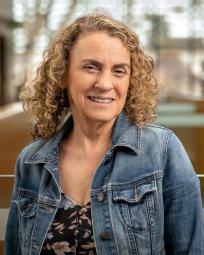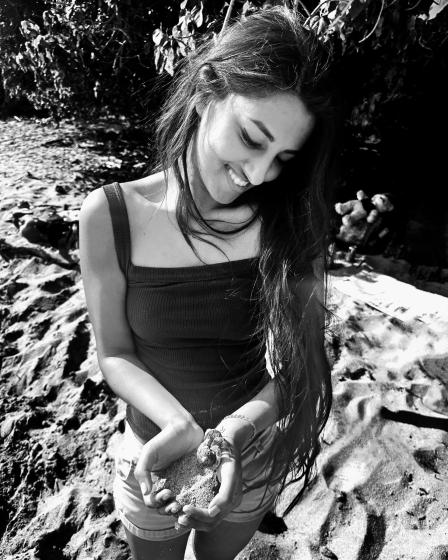

YSE Class of ’23: Neeti Jain Is Recasting Educational Exhibits with an Environmental Justice Focus
With a background in ecology, Neeti Jain seeks to expand the voices in conservation through more inclusive storytelling.

With a background in ecology, Neeti Jain seeks to expand the voices in conservation through more inclusive storytelling.
At her core, Neeti Jain ’23 MESc is an educator. She’s been a teaching fellow for five courses at the Yale School of the Environment, helping to design curriculum, and has worked with the Yale Peabody Museum and the American Museum of Natural History in New York to revamp exhibits.
“What I'm trying to do is think about how to use the principles of environmental justice and social justice to make the exhibitions and programming of museums more diverse, inclusive, and accessible, and welcome new audiences into this space,” Jain says. “It’s about expanding the reach of environmental education to tell more inclusive stories.”
With a background in ecology and evolutionary biology, Jain knew she wanted to focus on environmental justice when she entered YSE.
“I was always interested in the natural world. I’ve always been excited about spaces that inspire curiosity, wonder, and discovery — places such as museums, zoos, aquariums, and botanical gardens,” Jain says.
As a National Science Foundation Graduate Research Fellow, Jain has used funding to work with the Peabody on its major renovation aimed at reinventing itself as a “A Museum for a Modern World.”
Kailen Rogers, associate director of exhibitions at the Peabody, says Jain was immersed in the critical stages of the museum’s renovation. She worked as a facilitator for a group of young museum interpreters who were rewriting the labels for the diorama halls as part of an effort to expand beyond the pool of faculty curators and collections managers who oversee that work. She also distilled takeaways from a 2020 round of exhibition evaluations.
It's about expanding the reach of environmental education to tell more inclusive stories.”
“As we at the Peabody were figuring out how to turn our principled equity and accessibility goals into reality for the renovated museum — shifting our mindsets and practices is a tricky business — Neeti jumped in with insightful observations and suggestions. She was a consummate facilitator for the young staff on the projects she led, empowering them to share their visions and expertise while guiding them toward a concrete goal that met the museum's needs,” Rogers says.
Specifically, as part of her master’s thesis research, she worked on exhibits in the Peabody’s North American Diorama Hall, helping recast them with displays that promote agency, accessibility, and a sense of playfulness. The collections will feature sensory experiences, poetry, and voices of Indigenous peoples.
“It’s just a very different set of labels than I think traditional museums have ever had,” Jain says. “It will be very exciting to see how people are interacting with that space when the museum reopens in 2024.”
Last summer, Jain worked at the American Museum of Natural History, assisting in an evaluation of the Northwest Coast Hall, which had been co-curated with tribal communities of the Pacific Northwest, to explore how visitors responded to the museum’s new approach to the representation of human cultures.
“I think a lot of museums around the world are still working through some difficult questions, such as how to represent human cultures so it doesn’t feel like ‘othering,’ and whether certain objects from a culture should even be in the museums,” she says. “These are the longer-term conversations museums need to have.”
Jain says her courses at YSE opened opportunities to do formative work as an environmentalist.
“There is this really interesting tension between working within institutions and working within systems, but then also trying to think about how we can move out of what exists now and what we can build together. The courses at YSE helped me imagine radically different and liberating spaces.”
Gerald Torres, professor of environmental justice and founder of the Yale Center for Environmental Justice at YSE, says Jain has been a keen scholar and a dynamic presence in the classroom.
“Neeti was an inspiration in class. She always asked questions that cut to the heart of the issues we were discussing. Having students like Neeti makes teaching a pleasure and intellectual exploration a joy,” Torres says.
After graduation, Jain plans to move to New York City to continue her work in environmental education.
“This experience has really expanded my idea of what environmentalism and environmental work can look like and the ways in which everybody can participate,” Jain says.
